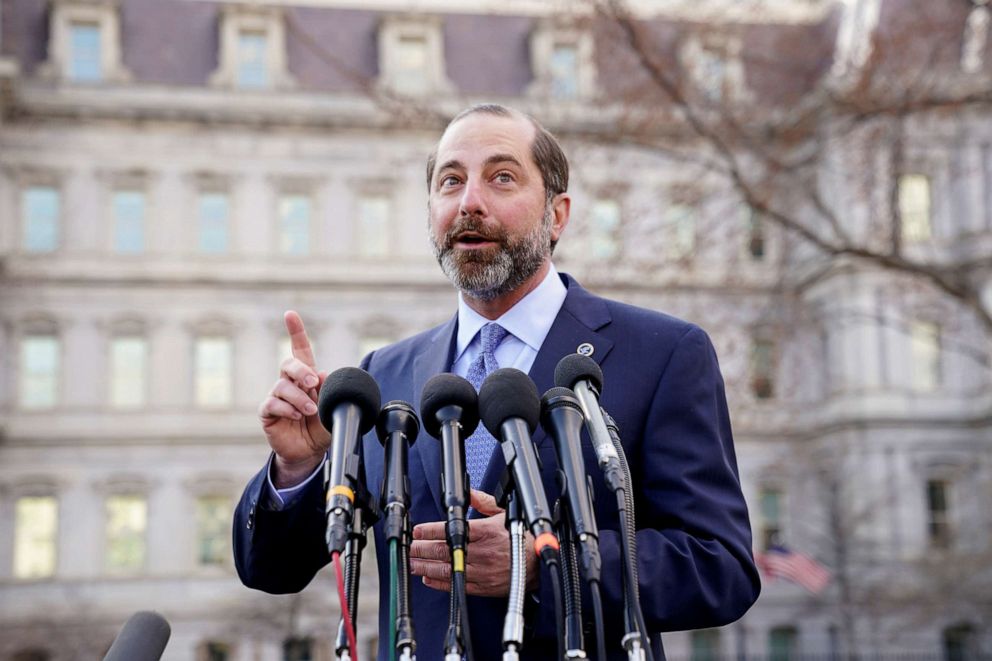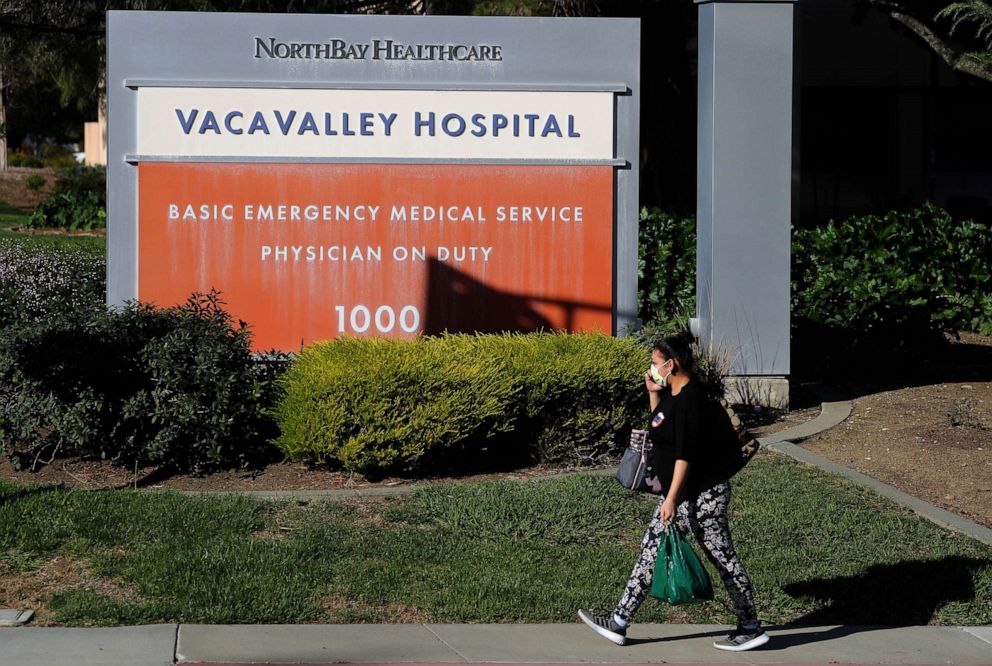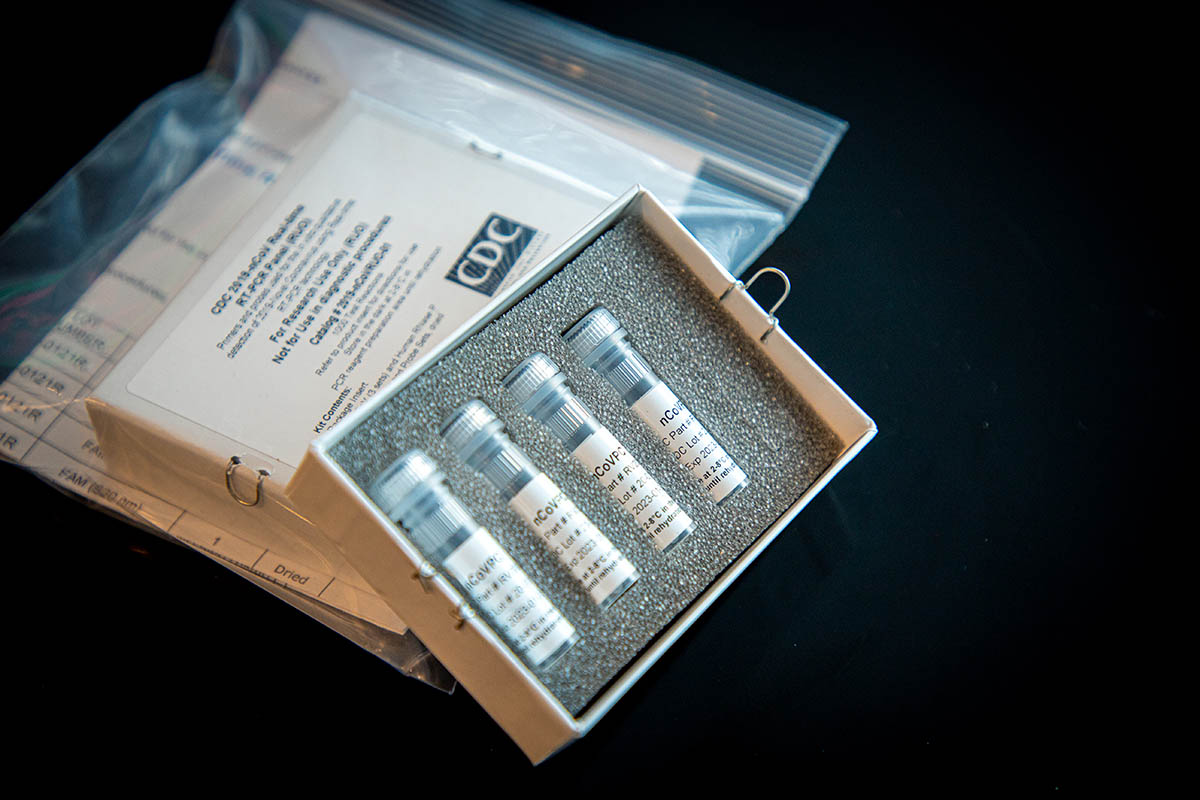CDC moves to rapidly expand COVID-19 testing capabilities in US
HHS Secretary Alex Azar said testing would happen over the next several weeks.
Health and Human Services Secretary Alex Azar said Friday that capabilities for testing for the COVID-19 virus would "rapidly expand" nationwide in the next several weeks as well as the criteria for who gets tested and when.
That announcement came as the Centers for Disease Control and Prevention scrambled to distribute new testing kits for coronavirus to state and local health departments after the latest confirmed case in California raised concerns it could spread beyond individuals known to have recently traveled to a country affected by outbreaks.
Azar, who chairs the administration task force on the crisis, said that while the risk from novel coronavirus, or COVID-19, is low for the American public, "that has the potential to change."
Azar said the FDA and CDC are in the process of putting out guidance for even more labs to be able to conduct the test without relying on the CDC for testing amid complaints from local officials that tests distributed by the federal agency were unreliable and scarce.
“That should rapidly expand in the next several weeks, that type of lab-based testing,” he told reporters at the White House on Friday.

Asked when every doctor in the U.S. would be able to administer bedside testing as they do for the flu, Azar said it would take “months.”
“We will spend whatever amount of money Congress gives us to rapidly speed along the development of the bedside diagnostic,” he said.
The number of confirmed cases in the U.S. is likely to increase as state and local health have more ability to conduct their own tests and CDC expands the criteria beyond only patients who traveled to Wuhan, China, where the virus is believed to have originated, should be tested.
The CDC said Friday that state and local health departments should be able to begin conducting their own tests for novel coronavirus by the end of next week.
The U.S. has fewer cases of coronavirus than countries like China, South Korea, and Italy with confirmed outbreaks but has also tested fewer people for exposure to the virus. The CDC originally recommended testing only people known to have been exposed to the virus, including those who traveled to Wuhan, China, where the virus is believed to have originated, or people who had been in close contact with recent travelers.
U.S. officials credit the lack of spread of new cases in the U.S. to the decision to quarantine U.S. citizens returning from affected areas of China and deny entry to foreign nationals who traveled to China.
That recommendation has since been expanded but local officials have also expressed frustration with the lack of available tests. In California, one patient tested positive for the virus after being hospitalized four days before the test was administered because the patient didn’t meet the CDC’s criteria and hadn’t been in contact with other victims of the virus. California Gov. Gavin News told reporters on Thursday that California had just 200 testing kits left for the entire state.
In Solano County, California, officials confirmed two new cases of residents transferred from the Diamond Princess cruise ship through Travis Air Force Base. County health officer Bela Matyas was asked Friday if he is concerned more people in that community have coronavirus but don't know it because they aren't exhibiting symptoms.
"I’m not concerned I’m certain," he told ABC News Correspondent William Carr.

The CDC has processed more than 3,600 tests for the new coronavirus, according to Azar, who said there is currently no backlog in having them processed quickly.
In comparison, South Korea already has tested more than 78,000 people, including 10,000 tested in a single day, according to the Korean National Health and Human Services Department website.

Shortly after the CDC began distribution of the test kits to states, it found what it called “performance issues” and laboratories were not being able to verify the results. As of Friday, CDC said it had resolved the issue. Positive results will still be sent to CDC headquarters in Atlanta to be confirmed.
“This has not gone as smoothly as we would’ve liked,” Dr. Nancy Messonier, Director of the Center for the National Center for Immunization and Respiratory Diseases, told reporters Friday afternoon.
ABC's Benjamin Gittleson contributed to this report.




